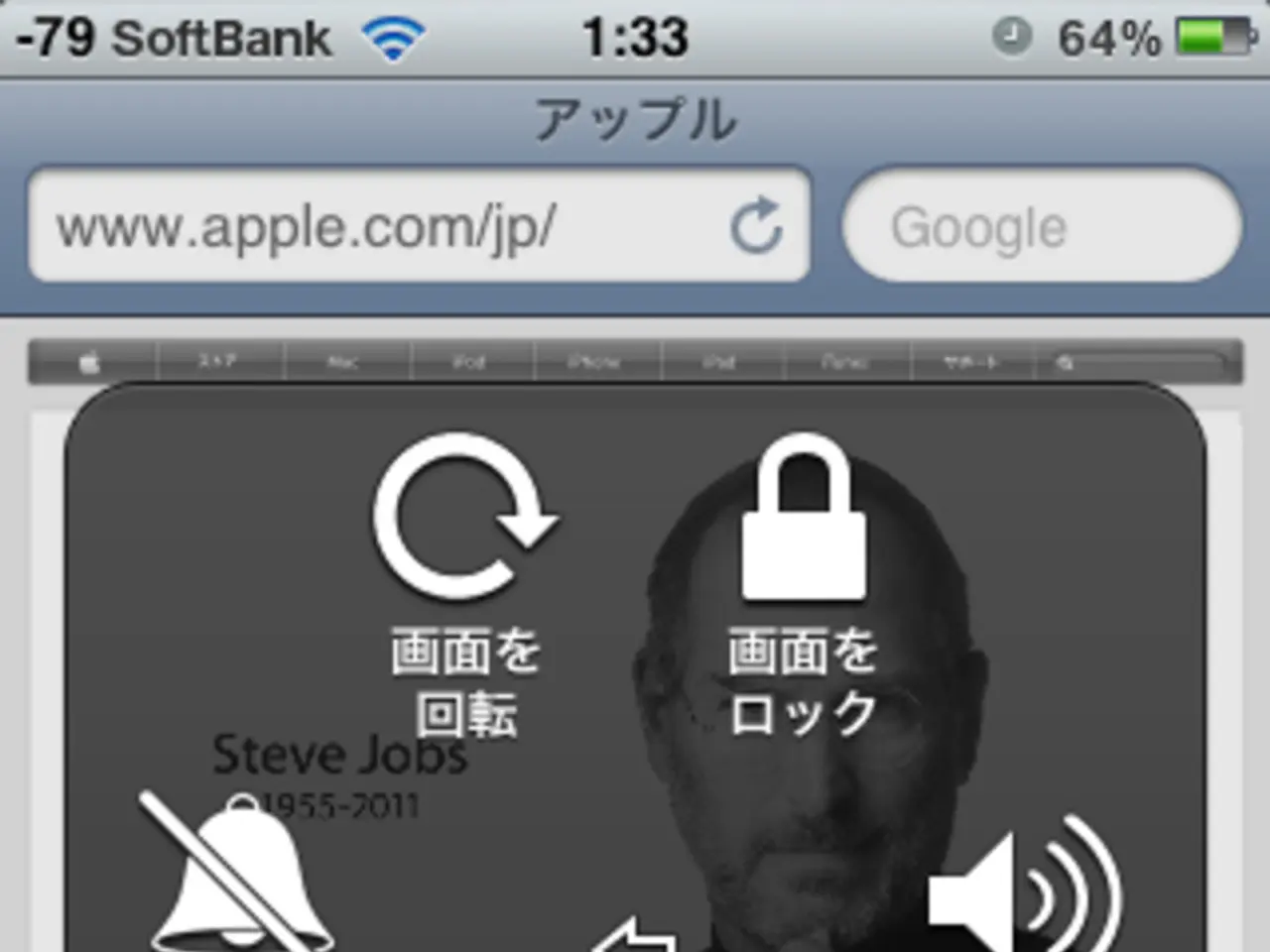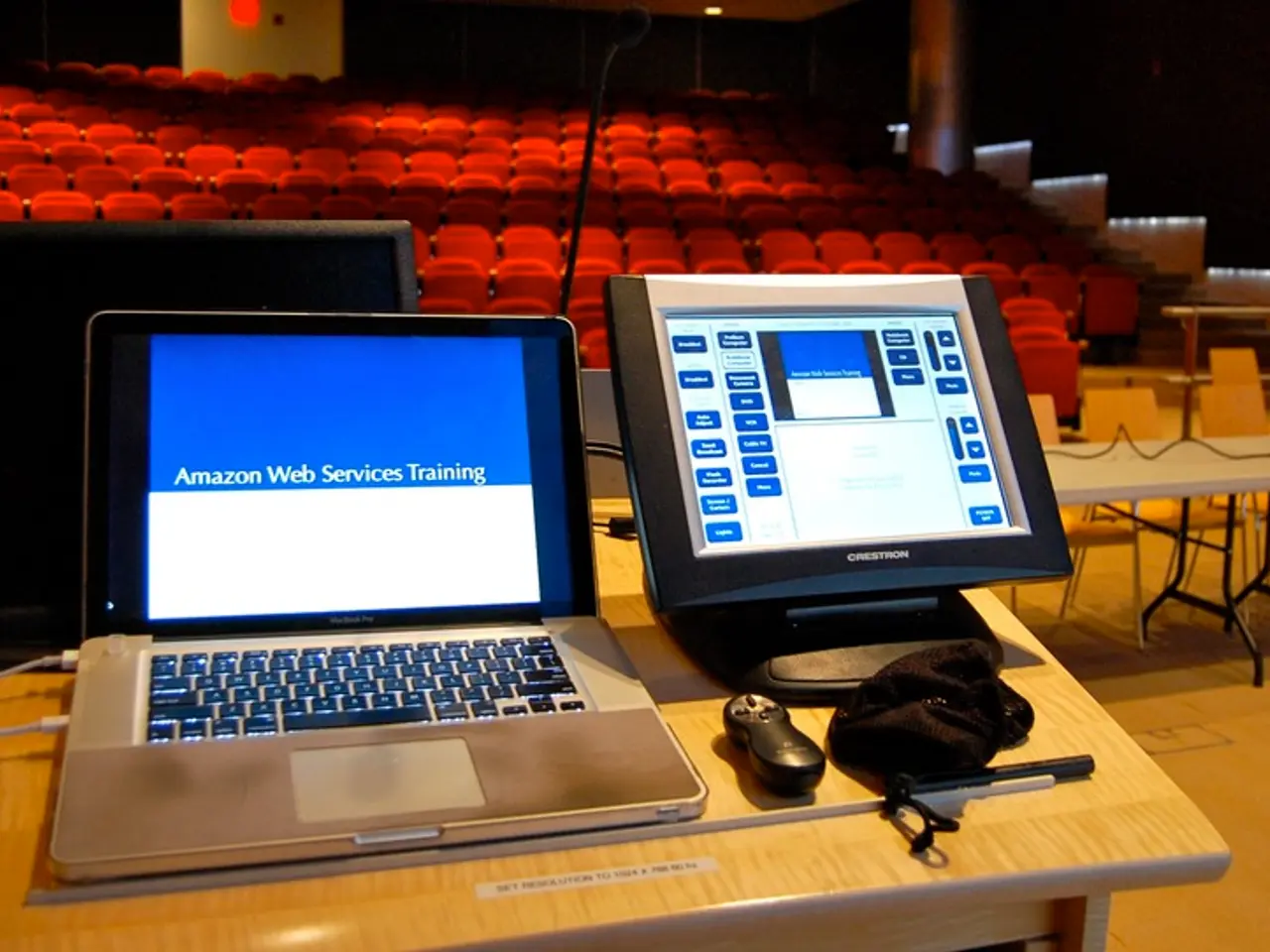Transforming Supply Chain Payment Methods: From Ancient Payments Systems to Blockchain Technology
In the rapidly evolving world of global trade, blockchain technology is making significant strides in revolutionising the way payments move through supply chains. This decentralised, secure, and transparent system is promising to transform the industry by offering a single source of truth that can be shared across multiple entities.
The current logistics landscape is facing a breaking point due to slow processing times, excessive transaction fees, and the need for multiple intermediaries. Traditional banking institutions, which dominate the supply chain payment ecosystem, were built for a paper-based world. However, blockchain platforms are now bridging the gap between legacy systems and modern solutions, offering a more efficient and streamlined approach.
Crypto wallet solutions are simplifying the conversion process and reducing fees for companies dealing with multiple currencies. These wallets are not only streamlining vendor relationships but also enabling more inclusive participation from rural suppliers in food & beverage logistics. In regions with limited banking infrastructure, a crypto wallet provides instant access to funds for verified perishable goods via IoT tracking on the blockchain.
Leaders in logistics and multinational corporations are adopting blockchain-powered platforms—often involving IBM collaborations and networks like Marco Polo—to handle high-volume multi-country payments through smart contracts embedded in supply chain workflows. This drastically improves transparency, speed, and security of settlements across international trade.
Maersk and IBM, for instance, are jointly using blockchain to enable real-time shipment tracking and automate payments with smart contracts that release funds upon delivery confirmation, reducing invoicing delays in global logistics. Similarly, Walmart and Nestlé, through IBM Food Trust, are utilising blockchain primarily for cold chain monitoring and provenance but also support automated payments linked to product delivery and verification in multiple countries.
The Marco Polo Network, a blockchain-based trade finance platform, is widely adopted by exporters, importers, and financial institutions to reduce intermediaries, enable secure, automated cross-border payments using smart contracts, and improve working capital cycles in international trade. Renault Group uses blockchain for supply chain documentation and compliance, facilitating real-time sharing of documents in its automotive multinational ecosystem, including payment and regulatory confirmations.
The Home Depot and Valencia Port Foundation, in partnership with IBM, are employing blockchain for enhancing supplier visibility and secure data exchange across multi-party, multi-country supply chains, which assists in automating payments and accelerating dispute resolution.
As ESG pressures mount and transparency becomes a regulatory requirement, blockchain's ability to offer real-time auditability will push even the most conservative sectors to adopt it. Stablecoins, digital assets pegged to fiat currencies, have made blockchain-based payments viable for mainstream use. Businesses can now use a secure crypto wallet to send and receive stablecoins instantly across borders without relying on bank transfers or wire services.
However, it's important to note that cybersecurity concerns persist in digital transformations, necessitating strong access control, backup protocols, real-time monitoring, endpoint security, and employee education. Regulatory uncertainty is another hurdle to full-scale adoption, requiring enterprises to work closely with legal teams to ensure compliance with local and international regulations.
Replacing or overlaying legacy systems with blockchain solutions requires APIs, middleware, and workforce training for smooth adoption. As stablecoin transactions are expected to rival SWIFT in volume, it's clear that supply chain payments, once a sluggish and opaque process, are being reengineered into agile, programmable, and resilient systems. Energy markets, with their high transaction velocity and global networks, will be among the earliest to standardise blockchain technologies.
In sum, the future of supply chain payments looks promising with blockchain technology at the forefront. With major logistics players and multinational corporations already embracing this technology, we can expect to see a more efficient, transparent, and secure global trade landscape in the near future.
References:
- Maersk and IBM Partner to Automate Payments with Blockchain
- How Blockchain is Revolutionizing Supply Chain Management
- Marco Polo Network: A Blockchain-Based Trade Finance Platform
- Top Blockchain Supply Chain Solution Providers
- Finance in global trade is witnessing a revolution due to blockchain technology, as it streamlines supply chain payments, offers transparency, and reduces invoice delays – a transformation that traditional banking institutions struggle to achieve.
- As more businesses adopt blockchain-powered platforms for international trade, the automation of cross-border payments using smart contracts is becoming commonplace, with notable examples like Maersk, Walmart, and Nestlé.
- Supply chain finance is expected to become more efficient and inclusive with the widespread adoption of blockchain, as crypto wallet solutions simplify currency conversions, enabling rural suppliers in food & beverage logistics to participate more easily.




